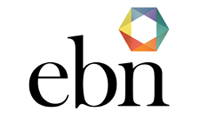
Recently I’ve had a lot of paperwork and research to do. Now, of course, almost any job has some element of admin and small business owners can sometimes feel a bit overwhelmed by the admin side of their company. Admin relating to
- keeping the business going, accounts, keeping up to date with things like policies, legal requirements,
- staff, pay, training, development, welfare
- personal development and personal welfare
- getting work
- work being carried out
- payments, customer interaction
- the other 101 jobs that are there.
No wonder we can get to the exhausted and overwhelmed stage!
After nearly 30 years of running my own business, and with the help of a business coach who worked with me for nearly two years and helped me get organised. To be completely honest I don’t like admin, it seems so boring, except issuing invoices, I love issuing invoices, when I spend some time wondering how I’m going to spend the profit!
One of the things I was taught was to spend quality time on admin. The great Mark Twain said “If you have to eat a live frog, do it first thing in the morning and nothing worse will happen to you for the rest of the day.” ! Since admin is my “live frog”, every morning I set my timer for 30 minutes and do admin. If I need to set the timer again and again then that’s Ok but admin get’s done first before I really start the day. My live frog gets eaten. Then I focus on what I am doing, knowing that the admin for the day has been done. And, of course, occasionally something “urgent” pops up but often even these urgent things can wait till the frog eating session the next morning.
So, I wonder, what’s your “live frog”?
While you are thinking about that here’s a gift to you: my Top 20 networking tips. Just follow this link: ebn.uk.com and complete the form to receive your copy.
Have fun,
Glenys








Recent Comments